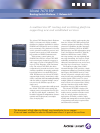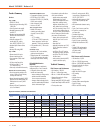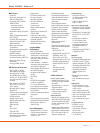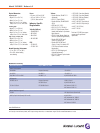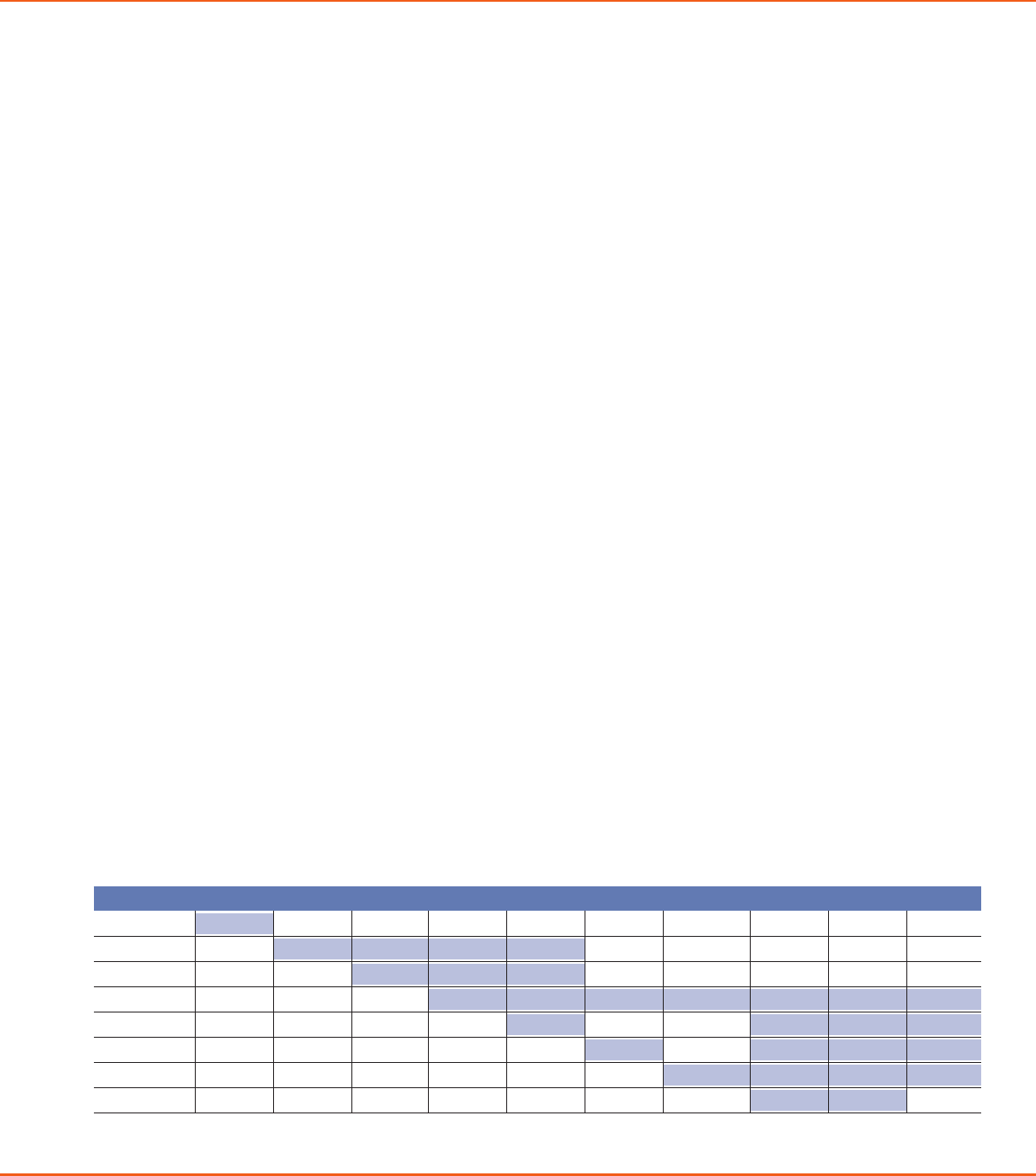
Product Summary
Services
Layer 3 VPNs
>
IP-VPN (RFC 4364)
>
Virtual routing and forwarding (VRF):
2,000 VRFs
> Inter-AS option-A and option-B
> Bandwidth guarantee per VRF
via MPLS-TE
>
Numbered and unnumbered VPN
interfaces with virtualized DHCP
relay agent
> Customer equipment (CE) –
provider edge (PE) routing:
static, BGP-4, OSPF, RIP v1/v2
> Integrated public Internet service
> Extranet
> Non-stop VRF routing/MPLS
Layer 2 VPNs
> Ethernet virtual LAN service
> Ethernet virtual leased line
> Circuit emulation (TDM) virtual
leased line
> Cell relay virtual leased line
> Cell relay and IMA v1.1 and
v1.0 switched services
> Frame relay and multilink frame relay
Network and service interworking
> Service interworking enables access
to Layer 2 VPN service via Ethernet,
cell relay and frame relay
> Network interworking enables IP/MPLS-
based services over ATM networks and
ATM-based services over IP/MPLS
networks
>
Ethernet, ATM and IP pseudowires
(a.k.a. draft Martini)
Residential broadband services
> IP aggregation: Ethernet, frame relay
> PPP, cell relay, POS, G.SHDSL
> Broadcast TV: IGMP v2/v3, PIM-SSM,
PIM-SM, static multicast
>
Video on demand (VoD)
>
Voice over IP (VoIP)
V
oice over packet service
> Reliable VoIP transport
(switching and routing) based
on quality of service (QoS)
> AAL2:
¬ G.711 encoding
¬ G.726 and G.729A/B compression,
silence suppression, comfort noise
generation, 128-ms echo cancellation
> Circuit emulation: AAL1, 128-ms echo
cancellation
Leased line service
> Leased line: AAL1 circuit emulation,
point-to-point and broadcast
> TDM over packet: AAL1 circuit emulation,
3/1/0 circuit grooming and packet-
based digital cross-connect switching
IP-Enabled Multiservice
Networks
Self-paced migration to multiservice,
multiprotocol Layer 2 and 3 networks
> Configurable service and protocol
isolation and interworking
¬ ensures continuity of existing services
¬ enables controlled introduction
of new services and protocols
¬ leverages collective strengths of each
protocol to enable multiple SLA-based
services with statistical gain
>
Comprehensive tools enable hierar-
chical service definitions
¬ multiple service queues enable
differentiated Layer 2 and 3
ser
vices with multiple QoS levels
¬ hierarchical, multilayer service
definitions enable delivery of IP
traffic without loss by prioritizing
an IP flow according to Layer 3 CoS
and by shaping resulting stream to
its Layer 2 circuit’
s QoS parameters
> Service isolation and fairness enable
per-customer SLA enforcement
¬ shapes, polices and marks traffic
based on Layer 2 and 3 service
definitions
¬
hierarchical QoS
¬ bandwidth reservations per IP CoS,
LSP, VC (hierarchical connection
admission)
¬ per-IP flow, LSP and VC queuing
and shaping at ingress and egress
¬ per-IP flow, LSP and VC fairness
and flow control
¬ work-conserving hierarchical WFQ
coupled to admission policy
Technical Summary
IPv4 Features and Performance
> IPv4 interfaces: 100,000
> FIB size: 1 million unique routes
> RIB size: >2 million BGP routes (RIB-in)
> Wirespeed forwarding for 40-byte
packets at all ports
> Non-stop routing: BGP, OSPF, IS-IS and RIP
> Graceful restart helper for BGP and OSPF
> PE and provider router
>
Unicast IP routing protocols: BGP-4
(route reflector, confederation) IS-IS,
IS-IS-TE, OSPF, OSPF-TE
> Multicast IP routing protocols: IGMP
v2/v3, PIM-SSM, PIM-SM, static
multicast
> MD5 authentication between routing
peers
>
Layers 3 and 4 access control lists
> AS path lists, community lists
and route maps
> Flow-based rate limiting
> Reverse path filtering
> DiffServ and DSCP remarking
> Eight CoS classes (user-defined)
> Multiple field classification (MFC)
> ICMP
>
Flexible ECMP implementation:
applicable to routing protocols
and static routing
> DHCP relay agent
IPv6 Features and Performance
> IPv6 interfaces: 16,000
> FIB size: 100,000 unique routes
> RIB size: >500,000 BGP routes (RIB-in)
> Wirespeed forwarding for 60-byte
packets at all ports
> Non-stop routing
> MBGP with IPv6 AFI support
> 6PE tunneling
> ICMPv6
> Neighbor discovery
> EUI-64 support
> Stateless address autoconfiguration
> Eight CoS classes
> DiffServ and DSCP remarking
Alcatel 7670 RSP | Release 6.2
2 < ALCA
TEL
Physical Interfaces, Channels and Protocols
GigE, 10/100 OC-48/STM-16 OC-12/STM-4 OC-3/STM-1 DS-3* E3 n*DS-1/n*E1 DS-1/E1 n*DS-0 DS-0
Ether
net Eth
OC-48/STM-16 POS, ATM POS, ATM POS, ATM POS, ATM
OC-12/STM-4 POS, ATM POS, ATM POS, ATM
OC-3/STM-1
POS, A
TM
A
TM, CE ATM, CE ATM IMA ATM, CE ATM, CE CE, AAL2
DS-3
A
TM, FR, CE FR, CE FR, CE FR, CE
E3
ATM, FR, CE CE CE CE
T1/E1 ATM IMA, MLFR ATM, FR, CE FR, CE CE, AAL2
g.SHDSL ATM ATM
* STS-1/DS-3 in channelized OC-48/STM-16 and OC-12/STM-4 inter
faces



